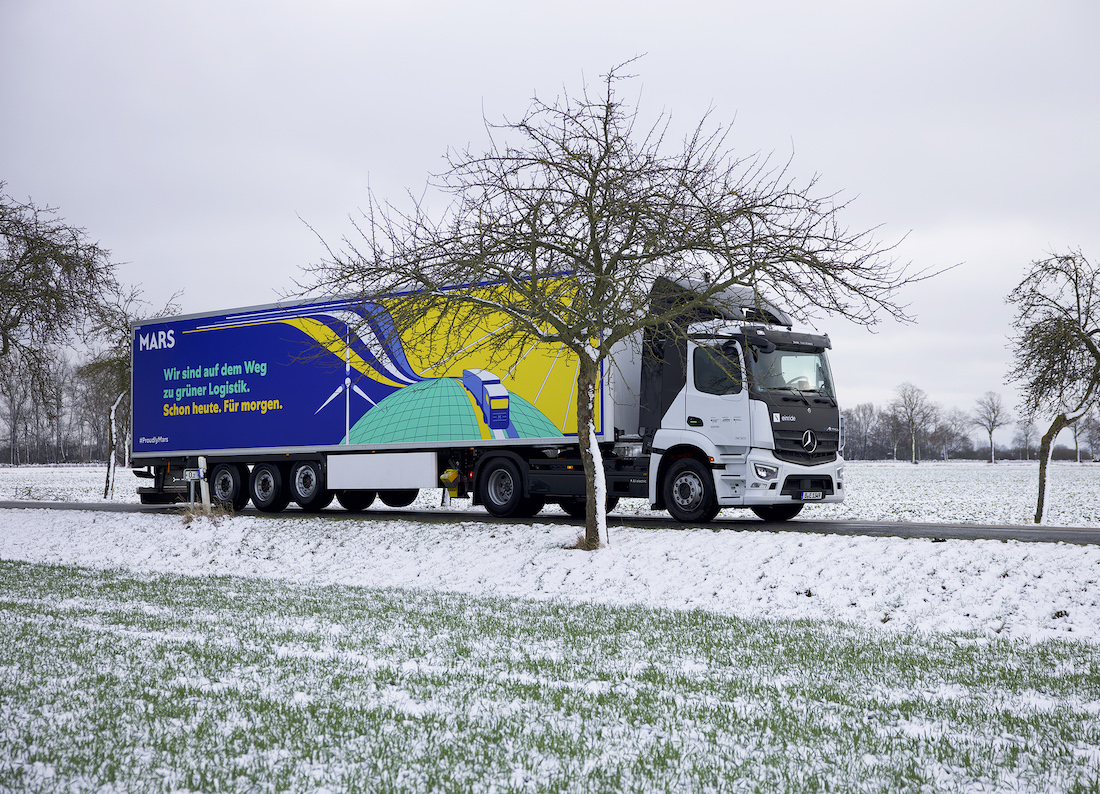
Mars, the colossal American food company, is aiming to deploy 300 "heavy-duty" electric trucks across Europe by 2030, marking what it claims to be the most extensive electrification initiative in European freight trucking to date. These trucks will traverse routes connecting various company facilities, making them well-suited for electrification. Given Mars' vast scale, with ownership of 50 global brands, the transition of its freight operations to electric vehicles (EVs) could significantly impact emissions.
The collaboration with the Swedish-owned company Einride was initiated in Germany last week, with plans to expand into the UK and the Netherlands later this year. Einride's CEO and founder, Robert Falck, sees this as setting a precedent for the freight industry, illustrating the considerable potential of electrification at scale.
The initial phase involves transporting pet food from Mars' Pet Nutrition factory in Verden, Germany, to its logistics center in Mindin, covering a roundtrip distance of approximately 91 kilometers (56.5 miles). Both locations are equipped with charging points, allowing the trucks, supplied by Einride with two Mercedes-Benz eActros 300s, to complete the journey with the option to charge on either end.
To kickstart the project, Einride provided Mars with the electric trucks and charging infrastructure. Each eActros 300 features three battery packs, totaling 315 kWh, providing sufficient range for about 300 kilometers (186 miles) with an average load. Mars plans to extend the use of these electric trucks to routes from its chocolate factory in Viersen to other sites, as well as routes in the UK and the Netherlands.
Mars is committed to investing $1 billion over the next three years to achieve its zero-emissions goal by 2050, aiming to cut carbon emissions by half across its entire value chain by 2030. The adoption of the 300 electric trucks is projected to result in a yearly reduction of 20,000 tonnes of CO2 emissions, equivalent to around a 10% reduction in greenhouse gas emissions from Mars Logistik in Europe annually. Additional vehicles will join the fleet, with Mars considering various manufacturers, and the company also plans to implement an autonomous pilot project by 2025 to complement its fully-electric operations.



0 Comments